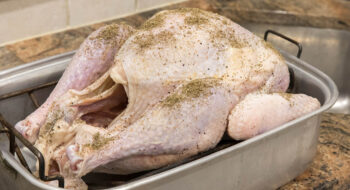It’s as true today as it’s ever been: When it comes to your health, you are what you eat.
Especially when it comes to your gut.
Researchers now understand that having a healthy “gut microbiome”– the complex system of organisms, including bacteria and fungi, that exists in our intestines — is essential to our overall health. Achieving the right balance in your microbiome can not only affect the quality of your day-to-day life, it can help reduce your risk for a variety of diseases.
“While we are still working to gain a broader understanding of the importance of the gut microbiome, there is consensus that this complex system is connected to a number of different health issues,” says Dr. Christopher Bach, a gastroenterologist at Tidelands Health Gastroenterology. “It would not be an overstatement to say that a healthy gut plays a major role in helping us achieve a healthy body and a healthy mind, too.”
Foods to eat
Each of us can influence the health of our gut by what we eat, Dr. Bach says. His recommendations:
- High-fiber foods: These “prebiotic” foods are important for a simple reason–their fiber is food for the beneficial bacteria in our bodies. That fiber fuels the bacteria’s ability to churn out an array of healthy byproducts via the process of fermentation. Among the foods that fall in this category are almonds, greens, bananas, mushrooms and oats, among many others.
- Fruits and berries: Among the foods that Dr. Bach most recommends in this category are blackberries, raspberries and figs.
- “Probiotic” foods: “Probiotics” contain beneficial yeasts and bacteria and are essential to good gut health. There is a wide variety of foods from numerous world cuisines that fall into this group, ranging from yogurt and some cheeses to Kefir and Kimchi. Others include sauerkraut, pickles and cultured vegetables.
Still other foods that can benefit gut health are such popular and common items as broccoli, lentils, avocado, squash and black beans.
What to avoid
As for foods to stay away from? Among those that Dr. Bach recommends gut-conscious individuals avoid are:
- Red meat and barbecue: Though hugely popular, Dr. Bach says both items should be limited to just once a week. Moderation is key.
- Processed foods: Unfortunately, our grocery store shelves are inundated with these items, including everything from cookies and crackers to chips, pre-packaged cold-cuts and microwavable meals.
- “These foods really should be avoided if possible,” Dr. Bach says. “While convenient, they are packed with sugars, preservatives, coloring, chemicals and a whole host of calories that are devoid of nutritional value.”
- Artificial sweeteners: Recent studies suggest these sugar-like products can be damaging to gut health.
For those who are especially conscious about gut health, or for those taking antibiotics, Dr. Bach says it can also be a good idea to supplement a healthy diet with a probiotic-specific product such as certain probiotic yogurts and supplements.
Of course, Dr. Bach says, even the healthiest of eaters will indulge periodically. But with a consistent, balanced approach, a healthy gut can be achieved, he says.
“I tell my patients to use my dietary advice as a general guideline–as a blueprint for better health,” he says. “Yes, you will cheat here or there. Just try to keep those cheat days to a minimum. If you do so, I’m confident you’ll see results.”

Dr. Christopher Bach
Gastroenterologist, Tidelands Health Gastroenterology
Medical Education
Education
Medical College of Virginia
Residency
Johns Hopkins Bayview Medical Center, Internal Medicine
Fellowship
Yale University – Norwalk Hospital, Gastroenterology and Hepatology




